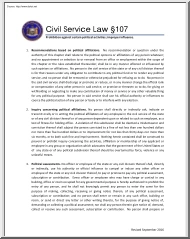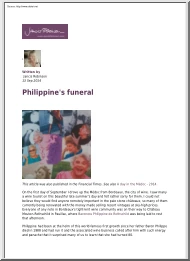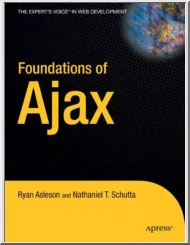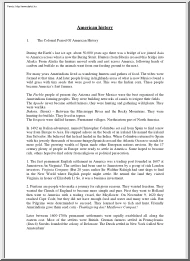Please log in to read this in our online viewer!

Please log in to read this in our online viewer!
No comments yet. You can be the first!
What did others read after this?
Content extract
Nursery observation Gábor Szondi EM9CF9 Dunaújváros, 06. May 2001 Methods for examining social relations: 1. The fisrt researcher, who examined the social relations was Jacob Levy Morenó These were so-called socionometrial examinations, in essence these were something like tests. The examined relations are typifyed graphically and processed statistically. The interactive choses or rather rejections are fixed in charts – this is a matrix. The consistencial index expresses the relation between the number of the alternate relations and the number of children. The cohesive index expresses the percent realised from the possible relations. 2. Ferenc Mérei has developed this, and he made the several aspect sociogramm Its criterias: CM (central malignalis) pointer: this means the percent of the central figure with the social zone and the percent of the insular members. Alternate relations: a) even b) triangle c) polygon d) asterisk e) string Group structure: set - loose - block -
blockcentric The meaning of the sociogramm: The sociogramm helps the educator - in choosing the individual treatment - in the recognition of the character - in developing the community We can do the develop of the sociogramm in the case of nursery children: 1. With a loose, guided interrogation 2. With an option method 3. Actrometrics Marking the stages of alignment: I. II. III. IV. V. VI. VII. VIII. IX. X. XI. XII. XIII. XIV. Lone idleness Lone grouped idleness Lone play Watching the others To be watched Grouped idleness Playing separately, but in a group Grouped watching The group is acting jointly, but the subject is apart Moving together Session round about a thing Collaboration Actin in cast Organised group acting, with bosses and acts Aspects of examining: - What is the matter of the game, and how does it change? - What is the past of the child look like? - How many off-hand group can be observed? - How does the groups come together? - How are the headcounts in the groups?
- What activity does the groups do? - How is the life-span of the groups? - What is the activity-level of the group? - What ideas does she/he add to the game? - How is the activity-level of the child during the game? - What does the understanding of the game look like? - What type of social structures evolves? Types of acting: The name of acting Giving a command Initiation Control Getting an object, attitude Attack Approach Action and answer by the subject or rather the others Gives a command, followed Gives a command, not followed Get a command, follows Get a command, does not follow Initiate, followed Initiate, not followed Initiation, follows Initiation, does not follow Controls Take part in the control Follows the control Serve Being served Asks for it, gets it Asks for it, does not get it Being asked, gives it Being asked, does not give it Expropriate from another Try expropriating, abortive Being expropriated Being expropriated, keeps fighting Attacks, or destroyes
Being attacked Threats Being threated Shows something Being shown something Offer something Do not offer Asks, but no answer Being asked, answers Being asked, does not answer Sign a á b c cs d e é f g gy h i j k l m n ny o ó ö ő p q r s sz t ty u v The examined group: The children are in the „big-group” (maybe „big-child-group”, I couldn’t find the meaning of the hungarian nagycsoport(os) word, but I searched it in several dictionaries, to no avail.) In this group, the headcount is twenty-two. Twelve girls and ten boys As the kindergarten teacher said, the group is almost full. There is alternate connection between 18 children, they are there since three years, and from them eight was together in the play-school, too. There are lonely children, too: Erzsi B. and Pisti K They have just started the nursery The boysgirls relation is mixed Observation I. Subject: Age: Agegroup: Zoli L. six „big-group” Time: 7.45 7.49 7.51 7.52 7.55 7.57 7.58 8.03 8.06 8.08
Start: End: Date: 7.45 8.10 12. April, 2001 Activity: Playing with cars, with P. F and Cs. K Exits from the game, hovers about. Searching in a babyhouse, finds an empty spray, grabs it, then keeps in packing. Walking, playing with the spray. Sit down to the carpet. Lay down, keep on manipulating, while watches Cs. K and K V Get a car into his other hand, sit up, rotates the car, swings the spray. Take away the games, grabs discs (red-yellow-green) controls traffic for P.F Changes the discs mechanically. Cower to his friends, keeps controlling. G.N and GT join game Then Zoli changes the discs mechanically, again. Activity level: X. cs I. III. III. IV. II. XIII. d IX. XII. cs IX. cs Observation II. Subject: Age: Group: Zoli L. six „big-group” Time: 7.45 7.47 7.51 7.52 7.54 7.59 8.03 8.04 8.05 8.07 8.09 Start: Stop: Date: 7.45 8.10 13. April, 2001 Activity: Playing with rocket, spins on the carpet holding the rocket in his hands. Takes it down, gets a car from the
shelf, then keeps on playing. P.F and CsK join to the game Zoli gets out, and watching something. Returns to P.F, they play together, they tow each other car, repair. Drag into a corner, turn his car, and starts repairing it with a wood-cube. Watches his friends, P.F and Cs.K Joins back to the game, transports. Gets out from the game, he is the policeman. Penalises P.F Stops the game, sits, watches the others and watches the dominos on the table. Activity level: III. III. X. cs IV. XII. e III. IV. X. e XIII. d XII. f IV. Observation III. Subject: Age: Group: Zoli L. six „big-group” Time: Activity: Plays with a car, repairs. Sit down to a table, keeps on playing. Watching his friends, sits down, then lays down to the carpet. Goes to the babyroom, watching the girls play. The girls admit him, he will be the dog, he goes under a chair. Does not move from the „doghouse”, and watches the girls from there. Get up, finds the spray, and besets it with gladness. Besets the
spray, hovers about. 7.45 7.51 7.53 7.57 7.59 8.01 8.04 8.05 Start: End: Date: Activity level: III. III. IV.-III IV. IX. e IV. III. I. 7.45 8.10 14. April, 2001 Summary (Zoli L.): Time/ level: 1.time: 2.time: 3.time: Sum.: I. II. III. IV. V. VI. VII. VIII. IX. X. XI. XII. XIII. XIV. 1 1 2 1 1 2 3 4 9 1 3 3 7 - - - - 2 1 3 1 2 3 - 2 2 2 1 3 - Answer to social activity: cs: d: e: f: 3 4 2 1 Rating: Zoli L. was in the middle-group, when he got into the nursery His grandma raises him, because his parents divorced. His mother works down in the country, so she visits him rarely Their lifeconditions are adequate, although Zoli has not got an own room, and sleeps with his grandma None the less that their material conditions are scant, the grandma keeps him clear. Entering the nursery: His speech was incomprehensible, he had rare activ vocabulary, but he understood anything. In some areas there were main misses His play: Firstly he did not play at all.Later,
he played with adult sharing, but when the adult finished playing, he did it so. Summary from the observation: He finds his place hardly in the group, does not play, talks rarely. The cause is that he can not initiate social relationship. He just stood so many times, and could not express, that he would like to play. Exercise: First of all, he should be learnt how to contact with the others. In this his groupmates can help. Observation I. Subject Age: Group: Gergő B. six „big-group” Time: 8.45 8.48 8.51 9.07 Start: End: Date: Activity: He starts LEGO at the table, then Peti H. and Gabi T join Watches his mates work, give ideas, control Continues work, rebuild their work. They took the ship, they made to the carpet, and start shipping. Gergő B. the captain, gives the roles. They start playing Activity level: XII. cs IV. a XIV XIV a 8.45 9.10 12. April, 2001 Observation II. Subject Age: Group: Gergő B. six „big-group” Time: 8.45 8.49 8.51 8.59 9.01 9.04 9.05
9.08 9.09 Start: End: Date: 8.45 9.10 13. April, 2001 Activity: Builds something with his mates, Gergő B. controls Gergő clears up a problem (Peti F. was irregular Then keeps on building. Gives a command to build a castle, he builds the road. A new child join, Gerg[ B. and Peti K. tells him his exercise His mates are playing wiht cars. Gergő takes the roads, trees and traffic signs. Takes houses on the roadsides. He watches his mates playing. Joins the game, tells the rules. Watches the hoopla in the babykitchen. Playing with cars, again. Activity level: XIV. a XIV. a IX. a XIII. a IX. IV. XIII. IV. IX. á Observation III. Gergő B. six „big-group” Subject Age: Group: Time: Activity: Builds a robot. Builds a rocket with his mates. Takes the rocket to the carpet, they build an airport. Other boys join, Gergő gets the control. Playing with airplanes, rockets, Gergő controls the planes. 8.45 8.49 8.53 9.01 9.03 Start: End: Date: Activity level: III. XII.
XII. XIV. a XIV. cs 8.45 9.10 14. April, 2001 Summary (Gergő B.): Time/ level: 1.time: 2.time: 3.time: Sum.: I. II. III. IV. V. VI. VII. VIII. IX. X. XI. XII. XIII. XIV. - - 1 1 1 2 3 - - - - 3 3 - - 1 2 3 2 2 2 2 2 6 Answer to social activity: a: á: cs: 7 1 2 Rating: Entering the nursery: He was three years old, when he got into the nursery. He got used to hardly, cried many times. His play: peaceful Summary from the observation: Plays gladly with his mates, he controls many time. Place of the observation: The nursery of Ópályi 4821. Ópályi, Rajk L street 87 Observating student: Gábor Szondi TIA-10 Date of observation: 12-14. April, 2001
blockcentric The meaning of the sociogramm: The sociogramm helps the educator - in choosing the individual treatment - in the recognition of the character - in developing the community We can do the develop of the sociogramm in the case of nursery children: 1. With a loose, guided interrogation 2. With an option method 3. Actrometrics Marking the stages of alignment: I. II. III. IV. V. VI. VII. VIII. IX. X. XI. XII. XIII. XIV. Lone idleness Lone grouped idleness Lone play Watching the others To be watched Grouped idleness Playing separately, but in a group Grouped watching The group is acting jointly, but the subject is apart Moving together Session round about a thing Collaboration Actin in cast Organised group acting, with bosses and acts Aspects of examining: - What is the matter of the game, and how does it change? - What is the past of the child look like? - How many off-hand group can be observed? - How does the groups come together? - How are the headcounts in the groups?
- What activity does the groups do? - How is the life-span of the groups? - What is the activity-level of the group? - What ideas does she/he add to the game? - How is the activity-level of the child during the game? - What does the understanding of the game look like? - What type of social structures evolves? Types of acting: The name of acting Giving a command Initiation Control Getting an object, attitude Attack Approach Action and answer by the subject or rather the others Gives a command, followed Gives a command, not followed Get a command, follows Get a command, does not follow Initiate, followed Initiate, not followed Initiation, follows Initiation, does not follow Controls Take part in the control Follows the control Serve Being served Asks for it, gets it Asks for it, does not get it Being asked, gives it Being asked, does not give it Expropriate from another Try expropriating, abortive Being expropriated Being expropriated, keeps fighting Attacks, or destroyes
Being attacked Threats Being threated Shows something Being shown something Offer something Do not offer Asks, but no answer Being asked, answers Being asked, does not answer Sign a á b c cs d e é f g gy h i j k l m n ny o ó ö ő p q r s sz t ty u v The examined group: The children are in the „big-group” (maybe „big-child-group”, I couldn’t find the meaning of the hungarian nagycsoport(os) word, but I searched it in several dictionaries, to no avail.) In this group, the headcount is twenty-two. Twelve girls and ten boys As the kindergarten teacher said, the group is almost full. There is alternate connection between 18 children, they are there since three years, and from them eight was together in the play-school, too. There are lonely children, too: Erzsi B. and Pisti K They have just started the nursery The boysgirls relation is mixed Observation I. Subject: Age: Agegroup: Zoli L. six „big-group” Time: 7.45 7.49 7.51 7.52 7.55 7.57 7.58 8.03 8.06 8.08
Start: End: Date: 7.45 8.10 12. April, 2001 Activity: Playing with cars, with P. F and Cs. K Exits from the game, hovers about. Searching in a babyhouse, finds an empty spray, grabs it, then keeps in packing. Walking, playing with the spray. Sit down to the carpet. Lay down, keep on manipulating, while watches Cs. K and K V Get a car into his other hand, sit up, rotates the car, swings the spray. Take away the games, grabs discs (red-yellow-green) controls traffic for P.F Changes the discs mechanically. Cower to his friends, keeps controlling. G.N and GT join game Then Zoli changes the discs mechanically, again. Activity level: X. cs I. III. III. IV. II. XIII. d IX. XII. cs IX. cs Observation II. Subject: Age: Group: Zoli L. six „big-group” Time: 7.45 7.47 7.51 7.52 7.54 7.59 8.03 8.04 8.05 8.07 8.09 Start: Stop: Date: 7.45 8.10 13. April, 2001 Activity: Playing with rocket, spins on the carpet holding the rocket in his hands. Takes it down, gets a car from the
shelf, then keeps on playing. P.F and CsK join to the game Zoli gets out, and watching something. Returns to P.F, they play together, they tow each other car, repair. Drag into a corner, turn his car, and starts repairing it with a wood-cube. Watches his friends, P.F and Cs.K Joins back to the game, transports. Gets out from the game, he is the policeman. Penalises P.F Stops the game, sits, watches the others and watches the dominos on the table. Activity level: III. III. X. cs IV. XII. e III. IV. X. e XIII. d XII. f IV. Observation III. Subject: Age: Group: Zoli L. six „big-group” Time: Activity: Plays with a car, repairs. Sit down to a table, keeps on playing. Watching his friends, sits down, then lays down to the carpet. Goes to the babyroom, watching the girls play. The girls admit him, he will be the dog, he goes under a chair. Does not move from the „doghouse”, and watches the girls from there. Get up, finds the spray, and besets it with gladness. Besets the
spray, hovers about. 7.45 7.51 7.53 7.57 7.59 8.01 8.04 8.05 Start: End: Date: Activity level: III. III. IV.-III IV. IX. e IV. III. I. 7.45 8.10 14. April, 2001 Summary (Zoli L.): Time/ level: 1.time: 2.time: 3.time: Sum.: I. II. III. IV. V. VI. VII. VIII. IX. X. XI. XII. XIII. XIV. 1 1 2 1 1 2 3 4 9 1 3 3 7 - - - - 2 1 3 1 2 3 - 2 2 2 1 3 - Answer to social activity: cs: d: e: f: 3 4 2 1 Rating: Zoli L. was in the middle-group, when he got into the nursery His grandma raises him, because his parents divorced. His mother works down in the country, so she visits him rarely Their lifeconditions are adequate, although Zoli has not got an own room, and sleeps with his grandma None the less that their material conditions are scant, the grandma keeps him clear. Entering the nursery: His speech was incomprehensible, he had rare activ vocabulary, but he understood anything. In some areas there were main misses His play: Firstly he did not play at all.Later,
he played with adult sharing, but when the adult finished playing, he did it so. Summary from the observation: He finds his place hardly in the group, does not play, talks rarely. The cause is that he can not initiate social relationship. He just stood so many times, and could not express, that he would like to play. Exercise: First of all, he should be learnt how to contact with the others. In this his groupmates can help. Observation I. Subject Age: Group: Gergő B. six „big-group” Time: 8.45 8.48 8.51 9.07 Start: End: Date: Activity: He starts LEGO at the table, then Peti H. and Gabi T join Watches his mates work, give ideas, control Continues work, rebuild their work. They took the ship, they made to the carpet, and start shipping. Gergő B. the captain, gives the roles. They start playing Activity level: XII. cs IV. a XIV XIV a 8.45 9.10 12. April, 2001 Observation II. Subject Age: Group: Gergő B. six „big-group” Time: 8.45 8.49 8.51 8.59 9.01 9.04 9.05
9.08 9.09 Start: End: Date: 8.45 9.10 13. April, 2001 Activity: Builds something with his mates, Gergő B. controls Gergő clears up a problem (Peti F. was irregular Then keeps on building. Gives a command to build a castle, he builds the road. A new child join, Gerg[ B. and Peti K. tells him his exercise His mates are playing wiht cars. Gergő takes the roads, trees and traffic signs. Takes houses on the roadsides. He watches his mates playing. Joins the game, tells the rules. Watches the hoopla in the babykitchen. Playing with cars, again. Activity level: XIV. a XIV. a IX. a XIII. a IX. IV. XIII. IV. IX. á Observation III. Gergő B. six „big-group” Subject Age: Group: Time: Activity: Builds a robot. Builds a rocket with his mates. Takes the rocket to the carpet, they build an airport. Other boys join, Gergő gets the control. Playing with airplanes, rockets, Gergő controls the planes. 8.45 8.49 8.53 9.01 9.03 Start: End: Date: Activity level: III. XII.
XII. XIV. a XIV. cs 8.45 9.10 14. April, 2001 Summary (Gergő B.): Time/ level: 1.time: 2.time: 3.time: Sum.: I. II. III. IV. V. VI. VII. VIII. IX. X. XI. XII. XIII. XIV. - - 1 1 1 2 3 - - - - 3 3 - - 1 2 3 2 2 2 2 2 6 Answer to social activity: a: á: cs: 7 1 2 Rating: Entering the nursery: He was three years old, when he got into the nursery. He got used to hardly, cried many times. His play: peaceful Summary from the observation: Plays gladly with his mates, he controls many time. Place of the observation: The nursery of Ópályi 4821. Ópályi, Rajk L street 87 Observating student: Gábor Szondi TIA-10 Date of observation: 12-14. April, 2001




 Just like you draw up a plan when you’re going to war, building a house, or even going on vacation, you need to draw up a plan for your business. This tutorial will help you to clearly see where you are and make it possible to understand where you’re going.
Just like you draw up a plan when you’re going to war, building a house, or even going on vacation, you need to draw up a plan for your business. This tutorial will help you to clearly see where you are and make it possible to understand where you’re going.